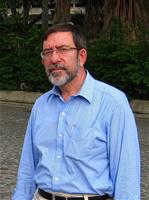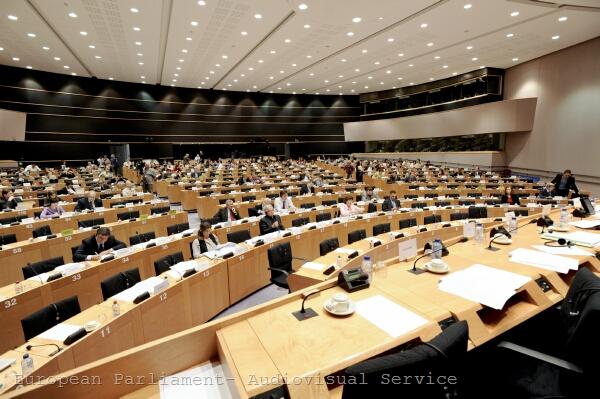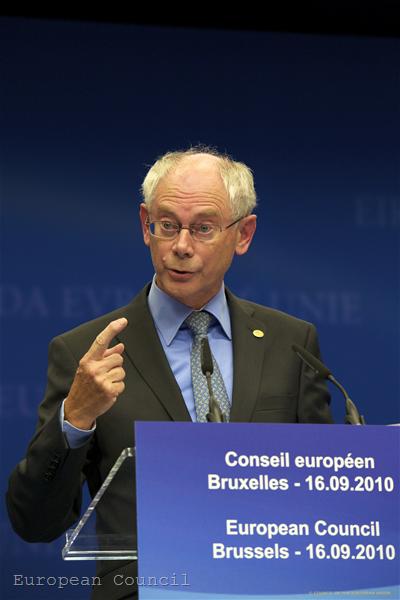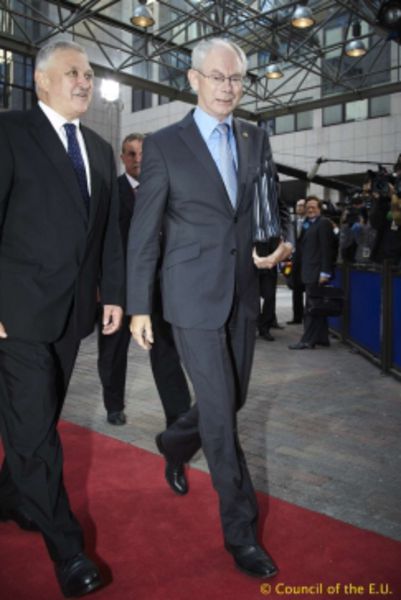Philip Dimitrov has received the strategic position Head of EU Delegation in Georgia
Ralitsa Kovacheva, September 16, 2010
 Philip Dimitrov has been appointed as an EU ambassador to Georgia. Such a good news and such a recognition Bulgaria hasn’t received for a long time, especially given the fact that the race for the 29 vacant positions for Heads of EU Delegations worldwide was tense. Moreover, after the entry into force of the Lisbon Treaty the rank of the Heads of Delegations is now equal to ambassadors for the first time in European history. And furthermore, against the background of the bitter battle between "old" and "new" Member States, Bulgaria is the only "rookie" country with an ambassadorial post in Europe.
Philip Dimitrov has been appointed as an EU ambassador to Georgia. Such a good news and such a recognition Bulgaria hasn’t received for a long time, especially given the fact that the race for the 29 vacant positions for Heads of EU Delegations worldwide was tense. Moreover, after the entry into force of the Lisbon Treaty the rank of the Heads of Delegations is now equal to ambassadors for the first time in European history. And furthermore, against the background of the bitter battle between "old" and "new" Member States, Bulgaria is the only "rookie" country with an ambassadorial post in Europe.
Given the strategic importance of Georgia to the EU, the selection of a Bulgarian representative is obviously not accidental - Bulgaria has traditionally close relations with Russia, which implies that great importance is attached to the work of Mr Dimitrov in Tbilisi and high expectations are assigned. "With the choice of a Bulgarian EU Head of a Delegation in a region of strategic importance for the European Union and Bulgaria, our country gives a concrete contribution to the modernisation of European foreign policy in the name of our common values and interests", Bulgarian Minister of Foreign Affairs Nikolay Mladenov said in a statement.
Obviously, the rich political biography of Philip Dimitrov has put significant weight for the appointment: Prime Minister of Bulgaria (1991-1992), member of 36th, 37th and 40th National Assembly, Permanent Representative to the UN (1997-1998 ), Ambassador to the US (1998-2001), an observer in the European Parliament (2007). Because, despite the pressure from the new Member States for a balanced distribution of posts and for a geographical balance, they have only 4 approved candidates out of 29. Except Philip Dimitrov, among the selected candidates are only the Lithuanian Vygaudas Ušackas, who received a position in Afghanistan in March and two Polish candidates who go to South Korea and Jordan.
With most ambassadorial posts (4) is Spain: in Namibia, Guinea Bissau, Angola and Argentina. Furthermore, a Spaniard will take the place of Deputy Chief of EU Delegation in China. With 3 posts are assigned to France (Zambia, Chad and the Philippines) and Ireland (Bangladesh, Botswana and Mozambique). Germany will send Heads of the Delegations to China and Papua New Guinea, Belgium - to Senegal and Burundi, the Netherlands - to South Africa and Lebanon, Luxembourg - to Singapore and Haiti, Italy – to Tirana and Uganda. The Swedish applicant was appointed to the very important ambassadorial post in Pakistan.
For Iraq and Brazil new competitions will be announced because, at this stage, there were no suitable candidates. Currently HR Catherine Ashton is in the process of screening the candidates for the recently published posts for an upgraded Head of Delegation in Bosnia and Herzegovina and the two Head of Delegation posts in Geneva (WTO and UN).
The appointments are part of a wider recruitment exercise for the future EEAS European External Action Service, headed by EU High Representative Catherine Ashton. The Baroness commented with satisfaction that she has appointed "the best people for the right jobs”. According to her these appointments demonstrate an improvement in achieving gender and geographic balance, “but there is more to do”. As soon as the 2010 rotation exercise has been concluded, Catherine Ashton will start work on the 2011 rotation, which is expected to include a comparable number of Head of Delegation posts as in 2010.
"We are satisfied not only with the fact that among the 29 EU ambassadors we have a Bulgarian, but also with the procedure of selection. The HR Ms Ashton created a real opportunity for the first senior posts at the European External Action Service the best to be selected. The procedure was the most transparent and open", Bulgarian Foreign Minister Nikolay Mladenov stated.
The Bulgarian state did not take any participation in the nomination candidates. The Foreign Ministry only provided information about the contest at a wide range of candidates, 18 of which have submitted documents for participation. The procedure involved the selection of documents and interviews with joint committees with representatives of the European Commission, the European Council and Member States in Brussels. The final selection was made personally by Baroness Ashton.
Aside from the arguments, so typical for the EU, especially after the fifth enlargement, which country to have representatives where, the list of appointments shows several important things. The first is that apparently an attempt for a geographical balance has been made in the context of traditional relations of some Member States to third countries. The second is that all candidates have previous experiences as ambassadors, ministers or even prime ministers. These things are particularly important at present because the EU ambassadors in third countries are the people that will have to try to realise in practice the ambition of the Union for a leading global role.
 | © European Parliament- Audiovisual Service
| © European Parliament- Audiovisual Service | © European Council
| © European Council | © The Council of the European Union
| © The Council of the European Union